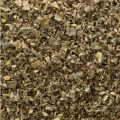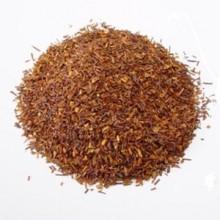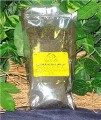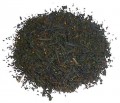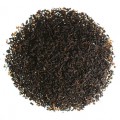 Loading... Please wait...
Loading... Please wait...- Home
- About Us
- Shipping, Returns & FAQ's
- Contact Us
-
For Your Information
- Canadian Customers Have a Choice if Shipping Via UPS
- Aura Cacia Homemade Aromatherapy Recipes
- Bella Nella Altered Art & Paper Crafts Blog
- Forms of Herbal Preparations
- Laundry Tips To Conserve Energy Blog from The Laundress
- The Story of Frontier Natural Products Co-Op
- Sovereign Silver Hydrosol and Aloe Protocol Stops Downward Spiral of Gut Dysbiosis
- Disclaimers
- Recommended Links
- RSS/Recent News
- The Story of Typhoon Housewares
- Reviews/Testimonials
- Raw Ingredients for Mfg
Rooibos Herbal Loose Leaf Fine Cut Bulk
Product Description
Only the rooibos leaves and twigs are used. Rooibos leaves are harvested in summer, cut or chopped and are left to ferment. During the fermentation of the rooibos leaves, some chemicals are oxidized by enzymes resulting in the typical red color and flavor of rooibos. Unfermented rooibos tea is also used and contains more antioxidants. Unfermented rooibos tea has a yellow color rather than the red color of fermented rooibos.
Rooibos has anti-carcinogenic and antimutagenic effects. Rooibos tea is used for its anti-inflammatory and anti-allergic properties. Consumption of rooibos tea may relief fever, asthma, insomnia, colic in infants and skin disorders. Rooibos extracts are used in ointments against eczema. In South Africa it is very common to give rooibos tea to babies who suffer from stomach cramps (colics).
Rooibos is the only known source of the phytochemical aspalathin. In vitro and animal studies have indicated that quercetin and luteolin help to prevent cardiovascular disease, some cancers and stroke. Rutin has been associated with the maintenance of blood vessels walls.
Because rooibos contains no caffeine, it is suited for babies and children. The low level of tannins in rooibos will prevent problems with iron absorption.
Sasaki YF et all (Mutat Res 1993;286:221-232) showed in their study 'The clastogen-suppressing effects of green tea, Po-lei tea and Rooibos tea in CHO cells and mice' that fermented rooibos tea reduced cancer-associated changes in animal cells induced by the certain mutagens both in vitro and in vivo. Other researchers found that rooibos extracts from fermented rooibos leaves reduced cancerous transformation of mouse cells irradiation with x-rays. They found that extracts from unfermented green rooibos tea did not show this protective effect.
Rooibos is grown only in the Cedarberg area and around the villages Clanwilliam and Citrusdal, which are situated to the north of Cape Town in South Africa. Efforts to cultivate rooibos in other areas or countries with similar climates have failed. Apparently rooibos needs a very specific climate and soil to grow. Rooibos tea has always been very popular in South Africa. To make the popular rooibos tea, the dried rooibos leaves are boiled in water and is often consumed with milk. Rooibos tea is much appreciated because it does not contain caffeine and is low in tannins.
Rooibos contains the following phytochemicals: Aspalathin, Nothofagin, Caffeic Acid, Chrysoeriol, Isoquercitrin, Orientin, Isoorientin, Luteolin, Vitexin, Isovitexin, Luteolin, Rutin, Flavonoids, Quercetin, Polyphenols
Botanical Name: Aspalathus linearis
aka: Rooibos tea plant, red bush, red tea
Origin: South Africa
Notes: Kosher Certified. Non-irradiated
Specifications are subject to change without notice.
* FDA Disclaimer
Reference: phytochemicals.info
Read More About It
Hot Water for Tea: An Inspired Collection of Tea Remedies and Aromatic Elixirs for your Mind and Body, Beauty and Soul by Nicola Salter
Tea with a Twist: Entertaining and Cooking with Tea by Lisa Boalt Richardson
Rooibos Tea: Rooibos tea health benefits are explained. Rooibos is also called red tea, red bush and in Africa rooibos tee. Rooibos tea benefits are greater than from other teas by Timoteus Vincenti
You Recently Viewed...
Currency Converter
Choose a currency below to display product prices in the selected currency.


